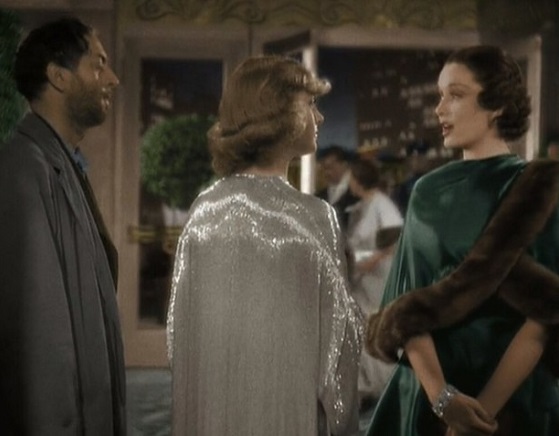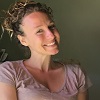Notes on Power: Sit with Your Own Powerlessness.

I wasn’t allowed in the courtroom when they all went in, so I walked the dirty, sad blocks of the town with my son in my arms.
The disheveled homeless man pressed to the side of an alcove, wild-eyed, peeking out at us every time I clacked by in the most expensive shoes I’ve ever owned, blistering my feet, my son awake but dead tired, watching the bleak street with dull eyes. I wanted to sit down, but everywhere felt unstable, like I’d be accosted by a drunk, like a dog had pissed there, like I’d cry if I slowed down.
We had arrived first to the courthouse and sat on the landing where there was space for our son to play. She was stopped by security when she came in and had to pass through the metal detector once, then again. When she finally collected her bag and turned to the room, she caught my eye. She smiled — condescending, angry.
She had only ever looked at me by accident, so I took the opportunity to smile back with all the kindness I wanted for us, for the children, but she ducked her head immediately and hurried to sit in the one seat that was shielded from our view.
When she stood to meet her lawyer, her cheeks were streaked with red, her shoulders small. “I won’t go into court with her,” she said to him, and he turned to search us out, landed his heavy eyes on me. He had a pale green tie, impatient fingers, a confident, peacock chest. He examined me unflinchingly as I sat there breastfeeding my son.
He would later make an argument that it was abusive of my husband to bring me.
“She’s his wife,” our lawyer said, “she’s here to support him.”
“Where they sat, up the stairs, looking down on the doors,” he retorted. “Dominating. Abusive.”
To call my husband abusive is like calling a spoon an apple. It’s so far from what he is it hurts the mind to even think about how a person could get there. And yet using that word, again and again, gave his ex-wife the power she was desperate for. She did not have to provide any evidence.
“If I feel I am being harassed, then I am being harassed,” she stated, and this allowed her to completely block my husband from having normal legal access to his own children. Child protective services were on to her, and recommended to the court that a legal order be put in place to guarantee my husband could spend time with his daughters, for the well-being of the children.
But her lawyer argued that a legal order would just be another stick my husband could use to hit her with if she was ever unable — through no fault of her own, of course — to uphold their agreement.
I walked my son to sleep in the dingy streets, and though I do not pray often, I prayed. There was nothing else I could do.
I grew up seeing my friends do things with their fathers that don’t mean much to anyone unless they don’t have a dad. The way they wrestled with their dads and danced with their dads and were angry at their dads for making them weed the garden. No one knows the choking grief that comes from seeing such everyday things unless you grow up without.
I had grown up without, and the thought of my husband’s children deprived of a good father for no reason other than their mother’s narcissism made me taut with despair. But what could I do? Nothing.
There was a furious woman telling a stock lie people love to believe. There was a slick white man speaking for her, the kind you can’t get away from these days — arrogant, amoral, with obvious sexual problems. There was our lawyer: smart, articulate who also happened to be female and black. No one heard her.
There was an imbedded British legal system deeply biased against fathers — the concept of custody had been abolished in 1989, and from then on the courts had handed all power to the mother to decide when and how a father could see his children. As a result, it was estimated that 3 million children were growing up fatherless in the UK, with a record 20,000 children losing contact with their father each year.
We knew those numbers. Our lawyer knew those numbers. The judge should have known those numbers, and her lawyer should have known those numbers. They alone had the power to change it.
But within an hour of sitting in that courthouse waiting room, watching the sad movements of the characters involved, our lawyer negotiating, her lawyer dominating to win, my husband and I knew it was over.
Never wrestle with a pig, my mother warned us when she heard we were going to court. You’ll only get dirty, and what’s worse, the pig will enjoy it.
But we have to, we said. The children, we said.
Very well. But when you go, make sure you do one thing, she said. Take notes on power. That way you’ll at least learn something.
When my son finally fell asleep, his little head rising and falling against my chest, I pulled out my phone and in the spit-stained parking lot, the haggard people trailing in and out of the decrepit building that decided their fate, I typed my notes.
It isn’t that evil is greater, or triumphing, or any of that old talk.
I could tell myself the story that I am small, powerless. I could rail at her or the court or God. But those are old solutions, boring, wasteful of time. What was happening was not a result of the court system, or her lockjaw need to control, or some god’s desire to punish. Those were old thoughts, low brain snake thoughts.
To blame is to give away power.
The truth was I didn’t know what was happening. I didn’t know why it was happening. I knew I had no power to stop it. I knew it would not be what I wanted, or what I thought it should be.
As I typed, I felt the pressure of movement, like the earth pushing up under my feet. All the many gross, shocking injustices of our times that I was powerless to stop were massing into the current moment, rising to topple me.
Climate change and war and rampant violence against women and mass shootings and ridiculous slick white men with sexual problems holding the reins to the world.
I don’t know what’s happening now. I don’t know why it’s happening. I know I have no power to stop it. I know it will not be what I want or think it should be.
It is power to feel that.
It is power to be able to sit with your own powerlessness.
I have not wanted what sometimes I say my husband dragged me into — dealing with what he calls his biggest mistake, a neurotic woman chained to his ankle, now in my life, now my problem.
But his problems are not separate from my problems. They are for me.
It is power to understand that.
But the judge who will listen for five minutes and then make a decision that will affect the rest of two young girls’ lives? The slick lawyer who can lie with his eyes closed? The angry woman who can convince them all that she’s a victim? Are they not the ones with the power?
The planet burning and the seas rising and the refugee children in cages, raped, or drowning, and the wild-eyed man in the alcove with nowhere to call home while the people who could change it all are dead-eyed and in-fighting about walls and backstops; it’s in their hands but their hands are dead except to tweet and tweet and tweet. Are they not the ones with the power?
As the dark things of the world pushed into me, as visions of my child fighting to live on a dying earth shook me like a hard gale, I began to whisper the names of those who live in truth. I began with my mother and tumbled on from there. All the names of the people I know and honor and adore. I whispered their names and their light bodies flew to me, to bolster me with their presence.
The world seems mad but it is not all there is, they said. What you see are fractured pieces of a picture too big to understand. Whisper the name of the god you follow. Whisper the names of the ones you love.
It is power to know how to do this.
And finally a deep glow came down around me and it was power, and I was no longer tempted or distracted by those who were acting in sickness. They had no power over me.
And when my husband emerged from the courtroom with bad news to share, it was not in his body. I could see that he was okay. He was quiet in his eyes. He said, “At least it’s over now.” He kissed me and he kissed our sleeping son. “Let’s go home.”
The ex and her solicitor stood huddled in the corner of the waiting room. I thought about how human they both were. The man who shamelessly fought to block a good father from his daughters went home somewhere, cried somewhere, suffered in his body as we all do. When I looked at him, I could see the emptiness in his pelvis, the way the root of him caved. He had no power.
The ex-wife beside him, who paid him to do it, was too miserable to be proud or happy about winning. She had no power. She got what she wanted, and now what? She was left alone to care for two deeply wounded children. She may never be able to stop blaming my partner for the pain in her life, and blame is a heavy weight to try and breathe under.
They were not who we wanted them to be, who we thought they should be. They were fractured pieces of a picture too big to see. They were not separate from us, but neither were they our responsibility. So we left them to their sad victory.
It is power to walk away.
In the parking lot, we heard two children singing. Their voices rich and melodious as birdsong, drifting down from an open window, into the grit and the noise of the city. My husband stopped and pulled me close to listen. “Even in the worst places,” he said, “there is always something beautiful.”
***

Dayna Brayshaw is a writer and somatic educator based in Brighton, UK. You can contact Dayna or find out more about her work through her website.

